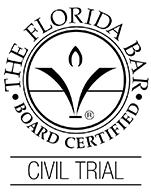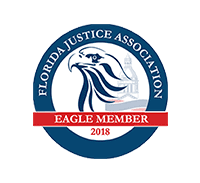When you get offered a settlement for your injury claim, you probably know that you don’t want to take an offer that’s less than the total damages you incurred. If you accept a lowball offer from the insurance company, you risk your award amount running out and still being left with medical bills and out-of-pocket costs.
For that reason, your injury attorney will work to calculate your total past, present, and future damages so you obtain maximum compensation. But in order to make informed decisions about whether to settle or not, you deserve to know whether your settlement will be taxed.
The last thing any injured person wants after settling a case is a surprise tax bill. In this situation, the only thing that matters is what you are going to put in your checking account after signing the deal.
Settlements and Tax Codes
Taxes apply to your gross income, which includes the sum of all things like wages, salaries, profits, interest payments, rents, and other forms of earnings.
According to Title 26 United State Code § 104(a)(2), gross income does not include:
“The amount of any damages (other than punitive damages) received (whether by suit or agreement and whether as lump sums or as periodic payments) on account of personal physical injuries or physical sickness.”
In other words, most settlements on injury cases are not taxable, so long as the damages arise out of personal physical injuries or physical sickness.
Keep in mind, however, that if you have previously deducted medical expenses and receive a settlement for personal physical injuries or physical sickness, you must include in your income the portion of the settlement that is for medical expenses you deducted in any prior years to the extent the ductions provided a tax benefit.
Additionally, there are certain things that may be taxable in personal injury cases:
-
Interest on any settlement is generally taxable as “interest income” and should be reported on line 8a of Form 1040.
-
Punitive damages are taxable and should be reported as “other income” on line 21 of Form 1040, even if the punitive damages were received in a settlement for personal physical injuries or physical sickness
Speak With an Attorney
Taxes are confusing and the rules can vary based on what may sometimes seem to be a minor detail. If you are unsure where your case stands in this matter, be sure to ask your lawyer and tax professional if your settlement is taxable before making any important decisions.
As always, Dismuke Law is here to provide you with the skilled and trustworthy legal representation you need after being injured. Our firm is dedicated to holding responsible parties accountable for their actions and advocating for the rights of injury victims across Central Florida.
Let us put our experience to work for you. Contact Dismuke Law at (863) 292-6922 to get started on your case.


![cftla-member[2]](https://www.1800askdave.com/wp-content/uploads/2022/03/cftla-member2.png)
![cftla-member[3]](https://www.1800askdave.com/wp-content/uploads/2022/03/cftla-member3.png)










